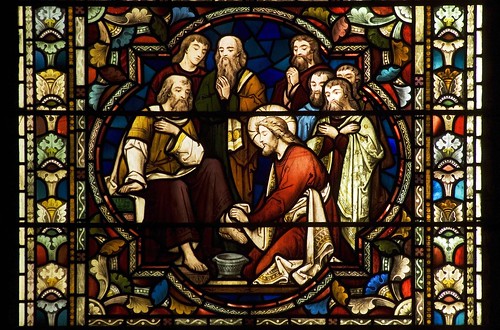 What is it with the washing of feet?
What is it with the washing of feet? For us, in our heavily shoed and socked culture (well, for men, anyway) the washing of feet seems a rather odd custom. After all, unlike Jesus’ day, it is not something we normally do to welcome visitors to our house. We might expect them to remove their shoes to protect the carpet, but for us to wash their feet ... I don’t think so. And while ladies may often bare their feet, men do rarely. Couldn’t we rather just note the symbolism of the gesture, the warmth of the welcome, the humility of Christ.
Yes, we could, but let us not lose sight of the physicality of the gesture. In fact, Holy Week is all about physicality. Jesus does not say the disciples are welcome, or portray a humble attitude, but he washes their feet. He does not sit and meditate in silence, but he prays out loud, ‘Father take this cup away from me’. He does not just say our sins are forgiven, or pray for reconciliation with the Father, but he suffers and dies on the cross. He does not just tell us that one day we shall dwell with him in heaven, but his body rises from death and eats with his disciples. It is not simply ideas, or thoughts, or beliefs. These are actions, events, physical encounters.
And so too with the Mass. He does not simply say - you are in communion with me - you are close to me in spirit - I will always be in your heart and your memories. No, he says do this to remember me. He takes bread and wine. He blesses, breaks and shares. He says this is my body and blood - not represents, not stands for, nor reminds you of - but is. Physically, really, truly.
Whatever our ideas, or thoughts, or beliefs, however much or little we understand, what we never must neglect is what we do. Actions speak louder than words.
That is why we wash the feet.
---
This is adapted from my homily for Maundy Thursday




